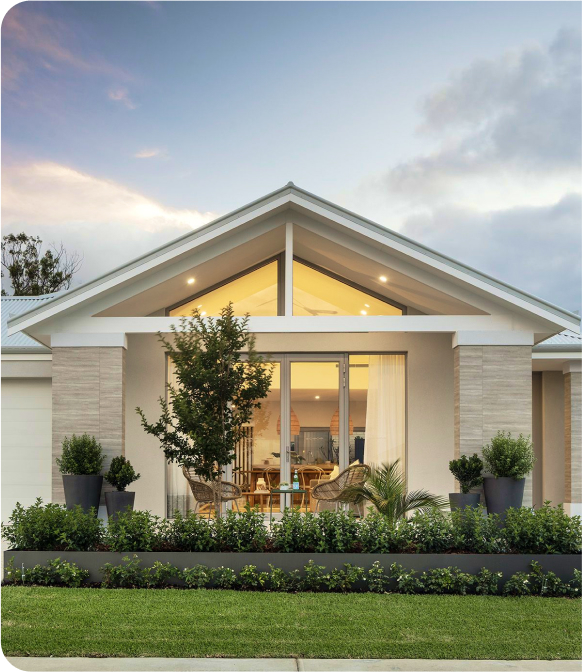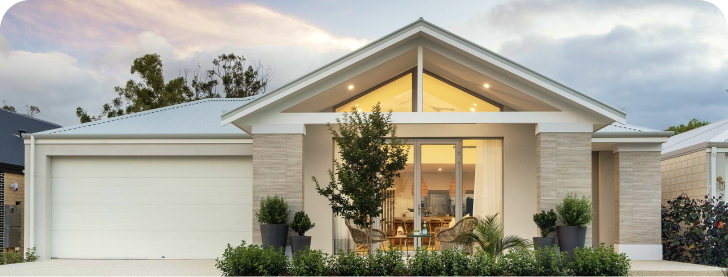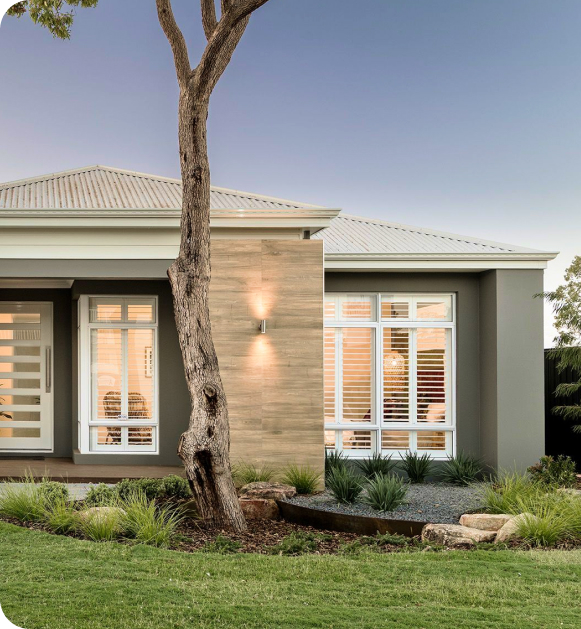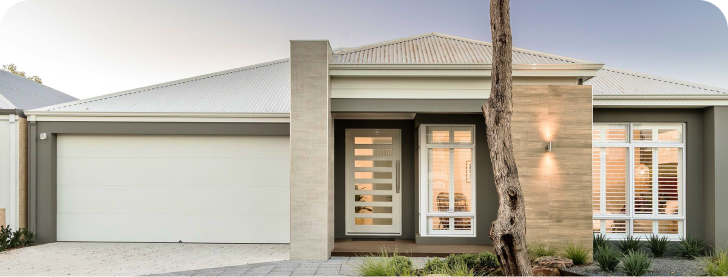
Being enclosed and self-sufficient small houses with all necessities, ADUs (accessory dwelling units) provide a proper level of privacy for all people who cohabitate within the frames of shared living space. However, although property owners’ family members and ADU tenants can stick to separate lifestyles, there are still common areas that demand establishing house rules.
How do you make your co-living experience pleasant or even result in meaningful connections? This article will explore the topic of effective approaches for people living on the same plot of land without violating each other’s boundaries.
Without further ado, let’s turn to the many benefits that co-living brings forth. The aim of communal living is to create the following positive effects for individuals and the community as a whole:
Maintenance of the property is sometimes cheaper when shared among several current residents. Of course, when we talk about utility bills, every new member living on the same lot only increases the cost of the bills. However, shared appliances, fixtures, and other resources and services (e.g., Wi-Fi) allow you to save money on acquiring double quantities and prevent overuse.
By renting out communal areas, entrepreneurs engaged in rental housing can fully recoup their mortgage payments and improve their own standard of living. Depending on the size of an ADU, you can rent it to one person, one family, or several residents. For example, one room for one tenant and a shared kitchen and living room.
Traditional rentals are rather costly, which can scare off potential residents. For instance, recent graduates and young professionals who don’t want to live in adult dorms again. Housing is especially expensive when we talk about large cities, and many people all over the world struggle to find a place with a tolerable monthly fee.
In ideal situations, shared apartments should foster a greater sense of harmony and unity in the neighborhood.
There are three common ways of communicating between residents of a particular rental property. These are in-person communication, note-leaving communication, and virtual communication.
In-person communication is clear: you just knock on your ADU tenant’s doors and discuss matters face-to-face. As for communication through notes, anyone who shares co-living spaces can put a note on a noticeboard for others to see. This can include notes on shared appliances, on products (if multiple tenants share co-living locations), or pinned to a noticeboard if, for instance, you need to chip in for a new device.
And finally, online apps and platforms play an important role in providing an easy exchange of opinions and notices between co-living people. Before accommodating a new tenant, notify them about the online channel you’re going to use (e.g., add them to a residents’ group chat).
This way, they will have an opportunity to ask questions and discuss problems, while you, as an ADU owner, will be able to post any significant information (reminding them when rent is due, collecting money for repairs to co-living space if prescribed by flexible lease terms, etc.).
In order not to annoy each other, it’s on your part as an ADU owner to build up a clear policy. A code of conduct is a useful tool that forewarns new dwellers in advance about what to expect and thereby brings their expectations in line with what awaits them in reality.
Among others, these rules typically comprise approximately the following content:
Keeping common spaces clean is important due to general hygiene considerations and aesthetics. At the beginning of shared living, all cohabitants are supposed to discuss this topic or, even better, set a schedule for every type of cleaning.
Thus, such tidying actions as washing the dishes and putting things back where they stood are daily cleaning routines, while changing finished paper towels, vacuum cleaning, or washing floors are typically weekly routines. Also, once a month, some of you have to clean up and check shared appliances and fixtures to not overlook any breaks or malfunctions.
Outline these rules and set dates and turns for each tenant, depending on the type of home chores and their frequency.
Can you avoid the situation when you and your family members are remote workers and you need to work in silence while your tenants suddenly come up with the idea to throw a tea party on your rooftop decks? It’s not that you all have to cross out game nights out of your life completely. All you have to do is plan your routines in such a way that the interests of all parties are respected.
First of all, decide on the following matters:
In fact, you can establish any other rules that you deem necessary or ease the rules significantly if you don’t want to live with all these formalities. The only vital thing is to respect other people’s rights to rest and relaxation.
Oftentimes, improper management of co-living spaces may lead to arguments and even quarrels between the residents of the same-plot buildings. But is there a way to create house guidelines that everyone will follow to avoid such situations becoming too heated?
Explore the tips below to build your own peaceful conflict resolution strategy:
If none of these worked out, apply to your lawyer or other professionals (if, for instance, you applied to co-living companies).
First of all, you should determine all shared living spaces on the lot so that there’s no misunderstanding of what belongs to them and what doesn’t. A common laundry room or a garden can be a shared living space for the homeowner’s family and a tenant. Next, set just and sensible rules of use for these spaces: time of use, cleaning rules and regular checks, limitations on noise level, and so on.
The following step may include creating a detailed maintenance schedule with specific dates or time periods when your shared goods need an inspection for breaks and defects. Or, you can discuss orally what obligations each party has in relation to the common living space.
The discussion of common space expectations shouldn’t be a one-sided process. Ask for the suggestions and opinions of the other dwellers in order to come up with the most effective conditions.
If you or your ADU tenant expect guests from other cities, there are a few things to note in order to avoid disturbing your co-habitants. Before housing visitors, be sure to agree on a policy about the following points:
ADUs are small houses, and they just cannot accommodate many people. Moreover, numerous people always make more noise and bring chaos into the measured lives of other inhabitants of the site. Therefore, it makes sense to agree on the number of people who can visit ADU and whether they can stay overnight or for a few days.
If we talk about big parties, it’s very important to remain vigilant with a large number of visitors. Because of the hustle and bustle, outsiders can get access to the site. One way to do it is to discuss the controlled admission measures (showing IDs, badges with names and photos, or other measures).
If visitors make a mess in common areas, party hosts are obliged to clean everything up as soon as possible so as not to interfere with the use of this space by other residents.
Such a system could consist of a document that enlists all renter’s obligations (what they pay for, what they don’t pay for, and the consequences of undue payment) as well as a digital spreadsheet that you use for documenting rental payments. This spreadsheet may include dates for payment, sums, debts if there are any, and other fees and charges.
Also, it can be useful to provide access to the table for every tenant (without the right to make changes) so that they’re able to monitor how much they owe and when. To remind renters about paying on time, you can also send an additional notification in case a tenant forgets to check the spreadsheets.
For transferring payments, pick a convenient bank or online money platform. Such digital means help track every transaction and serve as proof in court in the case of a serious dispute.
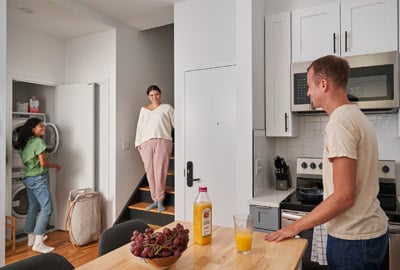
When co-living with someone, it’s especially important to make agreements about safety measures in advance. Be it rules for housing visitors, rules concerning privacy, or rules related to the safe use of shared spaces, you are to take preventive measures.
Write down and repeatedly vocalize the rules regarding locks on the doors, garage locks, fire alarm systems, security service alarms (anti-theft), and the use of security cameras.
You and your renters should have protocols for emergency cases, for suspicious behavior of strangers, as well as daily security measures that contribute to a hazard-free environment. Also, you should provide other residents with emergency contact numbers.
Another source of threat is unsolicited visitors. Establish the policy against strangers: if your tenant invites someone, they have to know their name, phone number, and address. You can also use key cards for doors, codes for door locks, or face identification systems to stop intruders. No authorized individual should go alone around the land plot.
“Colive” means the coexistence of several people in one common space. Co-living is an inevitable consequence of renting your ADU out because your family and renters will have to arrange their lives to take the needs of new neighbors into account. However, you and your close people can avoid difficulties if you follow tips from the article or click a sharing button to send it to those who’re in a similar situation currently.
The pros of co-living are sharing things, spending less money, helping each other out, and satisfying the need for social interaction. While the cons of co-living might include a reduction in privacy, a threat to safety, and conflicts about whose turn it is to use the shared room or clean it. To spare yourself all these problems, make sure to draw up a clear set of rules and make sure to bring these rules to the addressees.
ADUs are miniature houses that consist of a small kitchen, bathroom, bedroom, and lounge room. So, when you finish the ADU, ensure you have all the amenities necessary for everyday life. Yet, to make your unit more enticing, you can add something that appeals to the specific needs of certain renters. For instance, speaking of digital nomads or other remote, young professionals, you can organize furniture in a way that ADU has a home office corner.
